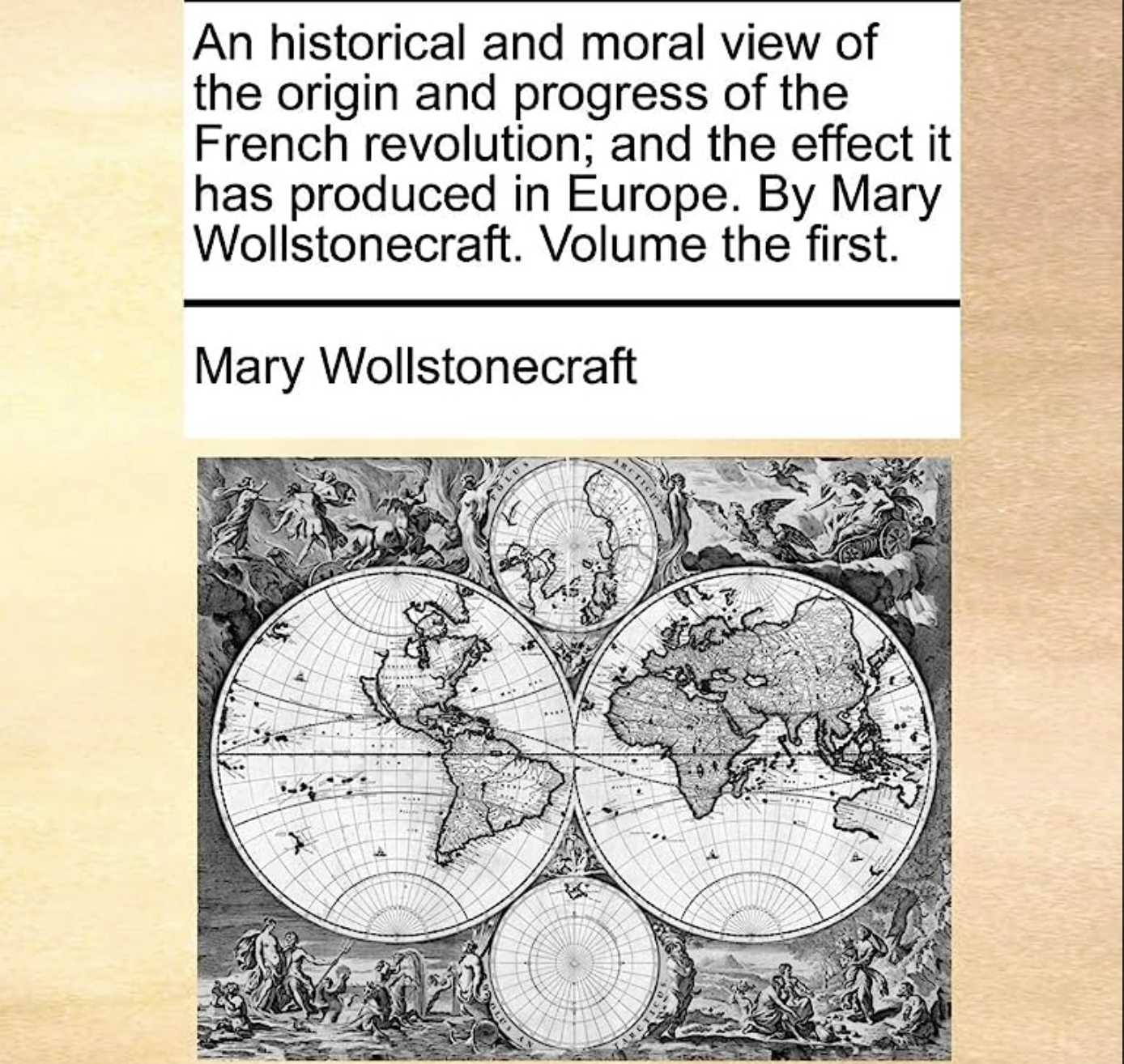Emma Letizia Jones on The Art of Memory
While great writing about architecture has been dominated by men, although this has shifted in the last 20-30 years, I feel that the discipline of art history has, in contrast, long championed great women writers and historians. When I think of great writing by women on architecture, I find that I more frequently turn to […]
Emma Letizia Jones on Plaster Monuments
Another book about architecture and memory, a very recent one, this time examining its preservation through cast copies. This book is very close to my own research interests, and deals with the topic of ornament and its reproduction in a very novel way. Lending is really concerned with cast fragments not as isolated educational or […]
Emma Letizia Jones on Michelangelo, Drawing, and the Invention of Architecture
Cammy Brothers is a prolific Italian Renaissance scholar. She is closer to an art historian, but I also appreciate that her work is not concerned with the boundaries between art and architecture, which in fact reflects a very Renaissance stance. For Brothers to focus on Michelangelo’s drawings and what they reveal about his turn to […]
Emma Letizia Jones on Goodbye to All That by Joan Didion
I have always admired Joan Didion because she is a rock star – as much as any writer can be. She is cool, which is rare, and not something you can learn. She is not strictly an architecture writer, but she writes about the intersection of place and memory in an entirely different yet complementary […]
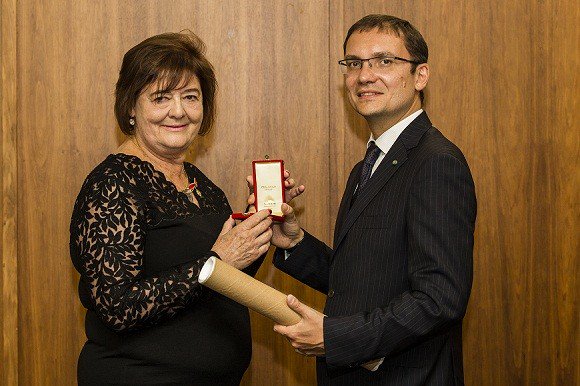
Emma Letizia Jones on Giorgione and Crossing Cultures
Most people do not know this, but the Australian academic and writer Jaynie Anderson received an Italian knighthood in 2015 from the Italian President, and is to date the only art historian ever to have been awarded the Order of the Star of Italy. In 1970 she was the first female Rhodes Fellow at Hugh’s […]
Emma Kleinbölting on The Living Mountain
At its core, The Living Mountain conveys that true understanding and connection with nature arise not from dominance but through a quiet harmony and reflective stillness. This insight resonates deeply with the work I’m pursuing this semester in Studio Caruso, where we are exploring the themes of remoteness and identity in the Swiss Alps. Though […]
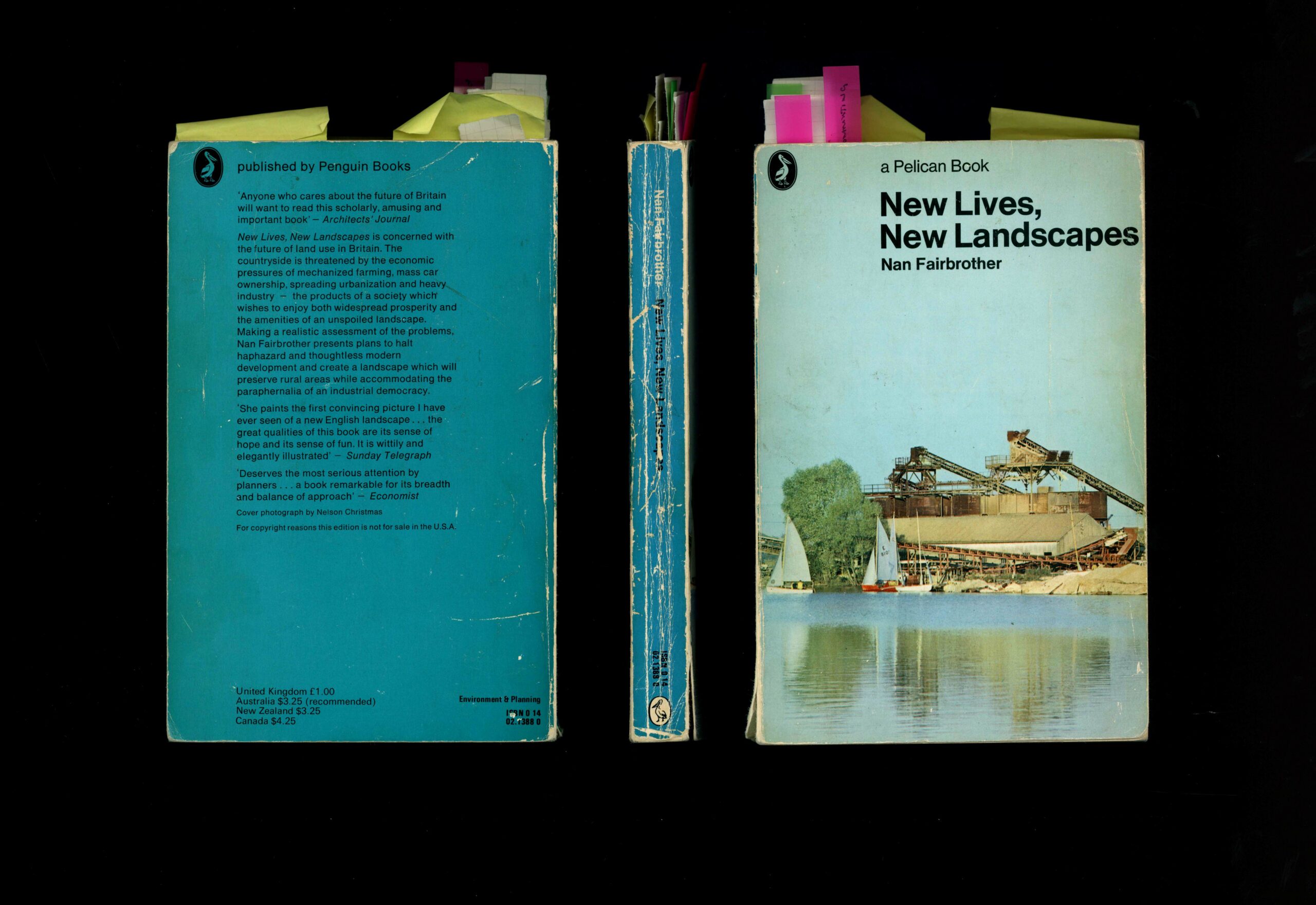
Emily Priest on New Lives, New Landscapes
New Lives, New Landscapes provides an enthusiastic account of the English landscape at a time when its suburban-rural countryside was being infiltrated by mechanised farming, mass vehicle ownership and industry during the post-war decades. It balances a precise and broad understanding of the regulatory complexity of land ownership with the very material and human effects […]
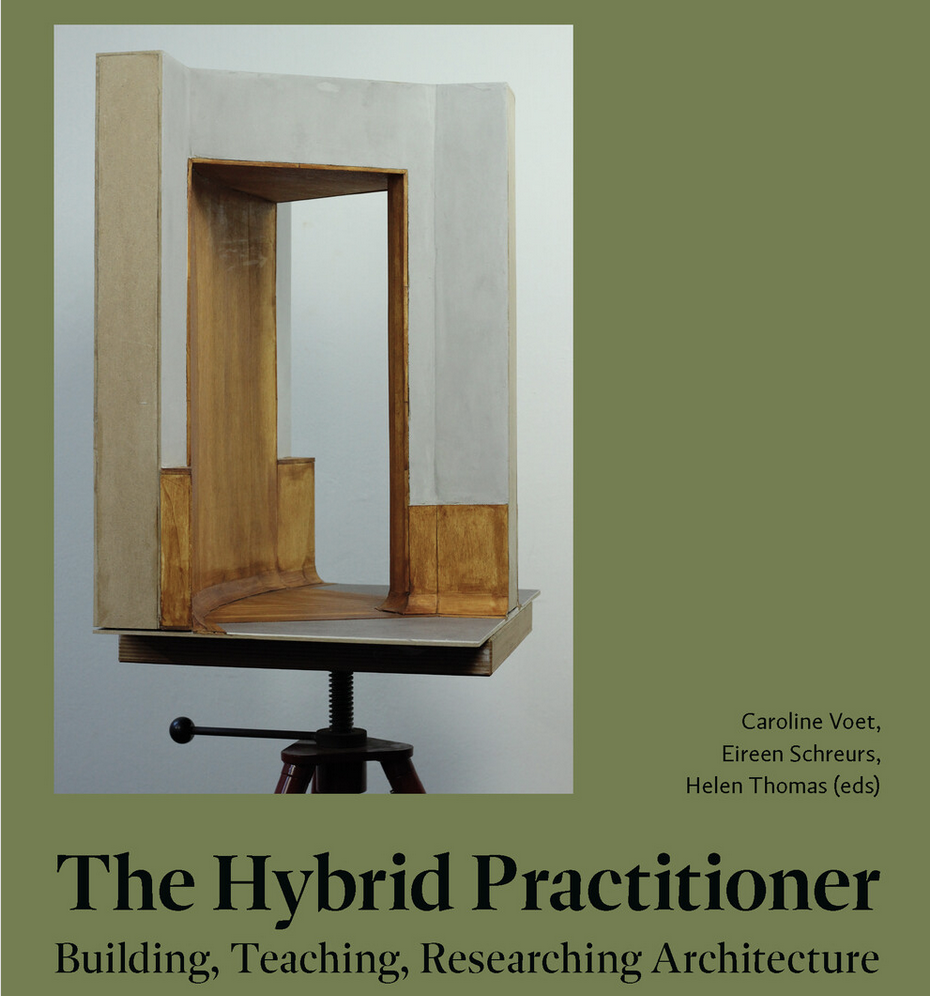
Emily Priest and Dylan Radcliffe Brown on The Hybrid Practitioner
To: Caroline Voet; Eireen Schreurs; Helen Thomas; combined editors of The Hybrid Practitioner Dear Editors, We attended The Hybrid Practitioner book launch at the office of architects Henley Halebrown in London, as part of their Dialogues lecture series in April this year. The launch included talks by Yeoryia Manolopoulou and William Mann, who framed […]
Emilie Appercé on Vom möblierten Zimmer bis zur Wohnung
Book recommended by the Association ProSaffa1958-Pavillon during the reading room session organised by Annexe at ZAZ, Zentrum Architektur Zürich. Berta Rahm wrote this handbook at the beginning of her career, a few years after she started her architectural practice in Zürich, which she eventually closed out in frustration with her profession to found her feminist publishing house […]
Emilie Appercé on Une paysanne entre ferme, marché et associations
Book recommended by Gianna Ledermann during the reading room session organised by Annexe at ZAZ, Zentrum Architektur Zürich. At the death of her husband, Augusta Gillabert-Randin takes over the farm alone. In this particularly touching extract entitled ‘Trente années de ma vie comme fermière (1893-1923)’, she retraces in numbers the last 30 years of the […]
Emilie Appercé on The Problem of Speaking For Others
Text recommended to everyone, activists and non-activists alike, by the feminist philosopher Deborah Mühlebach during the reading room session organised by Annexe at ZAZ, Zentrum Architektur Zürich, on the very complex question of the practice of representing for others, a person or a group of people in one’s interest. Everyone does it. The text was originally […]

Emilie Appercé on The Power of Place
The Power of Place, published in 1997, is relevant to anyone involved in the process of spatial and cultural production, or to young architects in search of alternative practices. It is for those who acknowledge the real way architects work, as a collective enterprise, which is not often the way architects talk about their work. […]

Emilie Appercé on the New Woman’s Survival Catalog
I ordered my edition of the New Woman’s Survival Catalog after watching a lecture by Mindy Seu, a designer and researcher whose work I discovered while scouring the colophon of a friend’s homepage as I was trying to build my own. The NWSC inspired her iconic cyberfeminism index—an online ever growing index which gathers techno-critical works starting from 1990 (when […]

Emilie Appercé on Nanda Vigo
Some of the photographs of the interiors designed by Nanda Vigo were familiar to me, but I didn’t know her so well.. Casa Gialla, Casa Blue or Casa Nera, and especially Lo Scarabeo Sotto La Foglia (The Beetle Under the Leaf) were the decors of many gangster and thriller films.. They have fascinated more than […]

Emilie Appercé on Maintenance Art
This was recommended by Amy Perkins during the reading room session organised by Annexe at ZAZ, Zentrum Architektur Zürich. Free artist and full-time mother, when her daughter is born, Mierle Ukeles feels literally split in two. On the one hand, she is rediscovering the world through her daughter’s eyes, on the other, she is bored to death. […]
Emilie Appercé on I’m every woman
Book recommended by feminist philosopher Deborah Mühlebach during the reading room session organised by Annexe at ZAZ, Zentrum Architektur Zürich. In her first book, The origin of the world, which traces the cultural history of the vulva, as in I’m every woman, Liv Strömquist points out the absence of women in history in general, the lack […]

Emilie Appercé on Box Furniture
I spotted a similar pocket DIY book, written nearly 40 years before the Berta Rahm one at the exhibition Here We Are! Frauen im Design 1900 at Vitra Design Museum. A pioneering champion of DIY, Louise Brigham designed simple pieces of furniture built from standard wooden packing crates. Her how-to manual Box Furniture was published […]

Ellis Woodman on Baggage
While renowned for her subsequent career as a broadcaster and newspaper editor, Janet Street-Porter spent two years as a student at the Architectural Association from 1965-67. The first volume of her autobiography Baggage: My Childhood (2004) offers a richly evocative description of the AA at a time of dramatic social and artistic upheaval. Her experiences […]
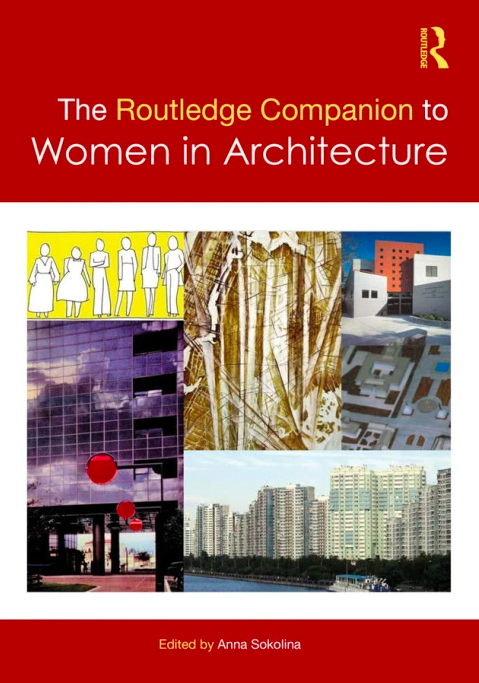
Elizabeth Darling on The Routledge Companion to Women in Architecture
This fascinating volume offers an invaluable transnational perspective on the significant and wide-ranging nature of women’s agency in the making of the built environment. From the early modern period to the present day, the case studies it presents interrogate and challenge our understandings of the interaction between gender and architecture. Editor Anna Sokolina writes: The […]
Elizabeth Darling on Something to Talk about: Modernism, Discourse, Style
In this article, Sarah Williams Goldhagen offers those in search of a different way of thinking about modernism – and, indeed, architecture more generally – a really significant steer. She moves away from relying on stylistic definitions and towards a positing of architecture as discourse: a set of debates about (in this instance) its relationship […]
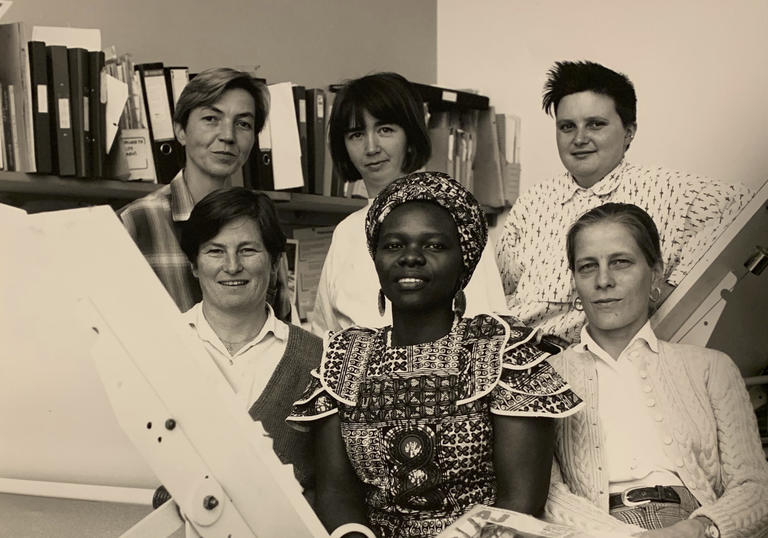
Elizabeth Darling on Making Space: Women and the Manmade Environment
I read this while studying for my Master’s in Architectural History in 1990-91. It was key for me in seeing how one might challenge the unthinkingness in the discipline (still regrettably present) about who is thought to be worthy of study. I loved all the chapters but especially that by Barbara McFarlane, on the women’s […]
Elizabeth Darling on Europe Rehoused
Published in 1938, Europe Rehoused became one of the most influential housing texts of the post-war era, and is still widely cited today (including my Master’s degree reading list). Written by the housing consultant Elizabeth Denby (1894–1965) it offers a survey of the nearly two decades of social housing built in six European countries since […]

Elizabeth Darling on Architecture and Social Reform in late-Victorian London
This is a great book, chosen because of the type of architectural historical writing it exemplifies. It offers a careful and detailed historical analysis of the new building types that emerged out of social and urban initiatives such as Settlements, in the later 19th century. I love the way the spaces and forms of buildings […]

Elisabeth Gellein on Occasional Works and Seven Walks from the Office for Soft Architecture
We love shacks, because they pose impossible questions. How can we change what we need? How can we fearlessly acknowledge weakness as an animate and constructive content of collectivity? Lisa Robertson, Occasional Works:185 Lisa Robertson‘s Office for Soft Architecture (OSA) is a conceptual and poetic project that explores the intersections of architecture, urbanism, language, and […]
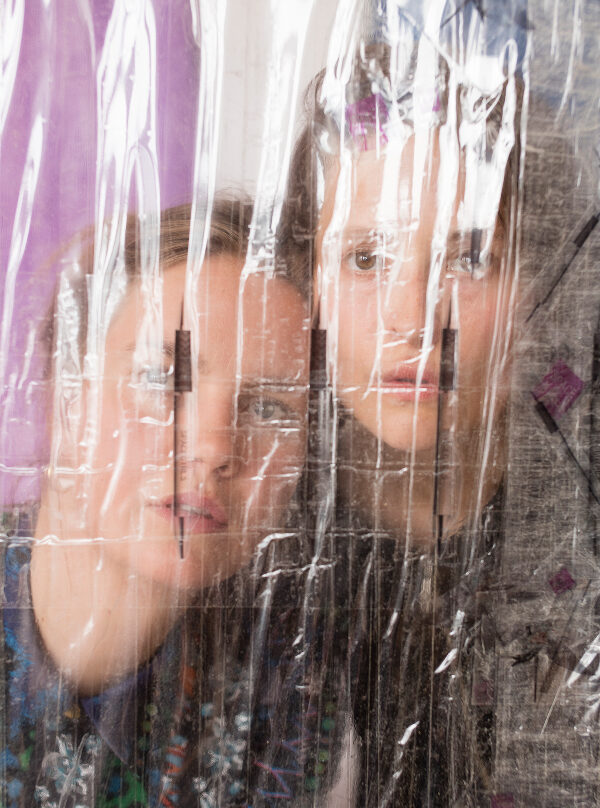
Elisabeth Gellein on Dirty Theory : Troubling Architecture
A conversation with Hélène—of sorts Sugar and spice and all things nice. That’s what little girls are made of. No doubt, the theory of the girl needs some reclaiming, for girls can be dirty, and not very nice — and why should they be deprived of these dubious traits? You dirty slut. In May 2024, […]
Elif Kurkcu on People who Live in Glass Houses
In Alice Friedman’s essay, People Who Live in Glass Houses, she speaks about issues of gender and sexuality in the 20th century with an emphasis on two iconic buildings: Philip Johnson’s Glass House and Ludwig Mies van der Rohe’s Farnsworth House. While designed and constructed around the same time, the two structures allow for different […]
Eliana Perotti on Promenades dans Londres
In the nineteenth century, urban criticism was often formulated by the pen of travelling women, such as the Peruvian-French publicist and walker Flora Tristan (1803-1844), who processed her experiences as a single, working woman in her socio-politically committed writings. Five years before the publication of Friedrich Engels’ Die Lage der arbeitenden Klasse in England, Tristan […]

Eliana Perotti on Metropolis
The screenplay for Fritz Lang’s legendary film Metropolis, which shaped the classic, albeit dystopian, image of the modern city, goes back to an often-unnamed author, Thea von Harbou, who was well known during her time as the writer of screenplays for the film. The script was preceded by a novel in which the disturbing and […]
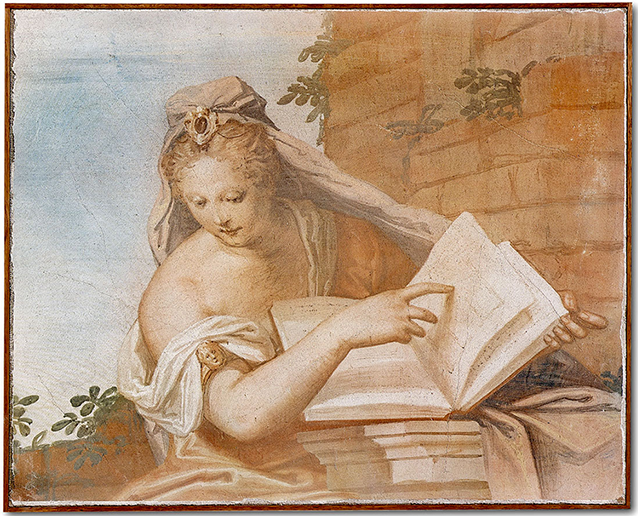
Eliana Perotti on L’architettrice
In the historical novel by the Roman writer Melania Mazzucco, the long life and work of the painter and architect Plautilla Bricci (1616-1705) are part of a precise but entertaining narration, which develops against the background of Baroque Rome. As a protagonist of the culture of her time, Plautilla appears alongside figures such as Gian […]
Elena Gallo and Tahnee Rutter on Swing Time
As students in the NEW ORDER studio at the Academy of Architecture, Mendrisio, led by Clancy Moore, Elena Gallo and Tahnee Rutter used the novel Swing Time as a starting point and guide for the developments of their design projects. This is a selection of the memory drawings and and fragment models that they made.

Eireen Schreurs on Organicism in Nineteenth Century Architecture
I have read parts of this book by the Leiden art historian Caroline van Eck for my PhD research on material culture in architecture, and I kept picking it up because is so insightful, but also because it is written so elegantly. Each chapter is systematically set up but also refreshingly compact, and every paragraph formulates ideas you […]

Efua Boakye on Black Vernacular
I sometimes indulge in imagining my ‘dwelling of dreams’, even though I am pessimistic about ever being in a position to actualise my perfect space. hooks’s essay poignantly touches on the power of the imagination, the politics of space, who gets to access architecture and cultural differences in approaches to building and placemaking.

Efua Boakye on Bad Behaviour
Bad Behaviour consists of multiple short stories. Set in 80s New York, Gaitskill’s narratives capture the essence of the city through the way the characters interact with one another. Not only are the stories in the book about interpersonal relationships and how people treat each other, but the descriptions of the spaces that the characters […]
Dorothee Hahn on Women in Architecture
Another compendium on women in architecture, that presents not only current but also historical figures–our architectural “pioneers.” A suitable book to catch up with our history.

Dimitri Bleichenbacher on The Triumphant Progress of Market Success
How are artists trained today? What service do they provide? How much is an artwork worth? What is the market price? What is value? Why is ZHdK (Zurich University of the Arts) no longer decentrally spread over the city of Zürich? Is Toni-Areal really the place where contemporary artists are educated? Why in an impermeable […]
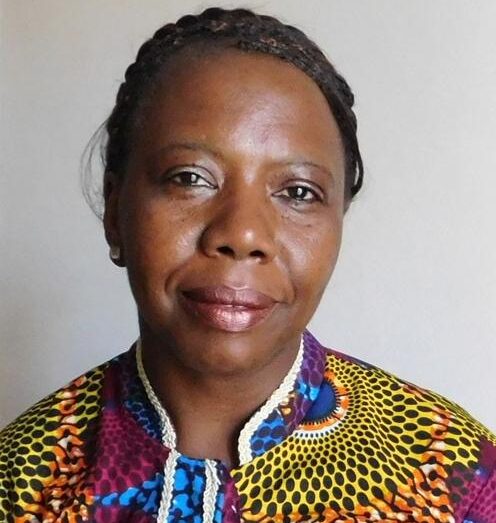
Diane Elliott Gayer on Amélie Essesse
The written and film work of Amélie Essesse is about the historic construction methods of mud construction by women in western Africa. Her work encompasses many layers and spans from workshops in New Mexico to Paris, as well as community implementation in western African historic preservation.
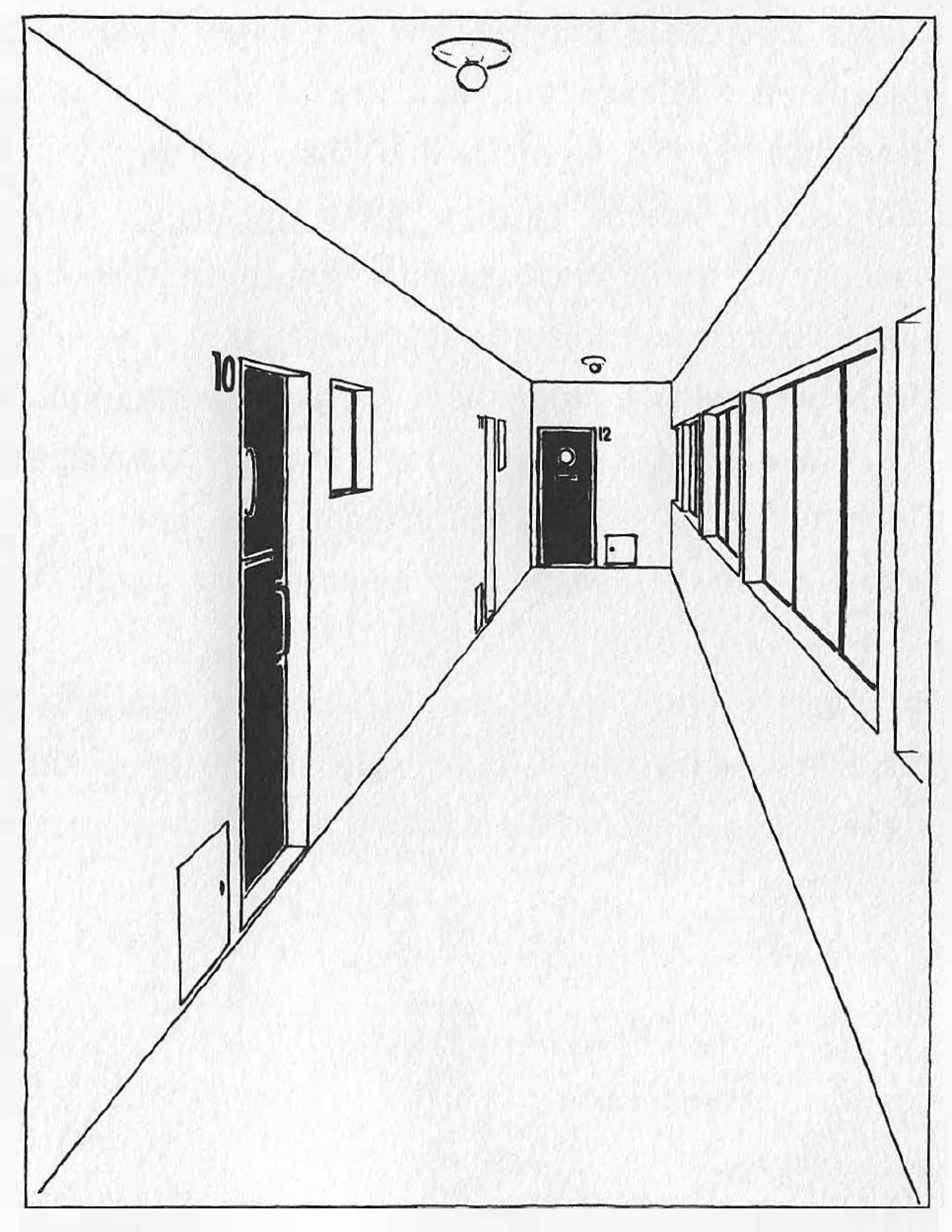
Despina Stratigakos on Das Haus der Alleinstehenden Frauen
As a graduate student, I came across a bizarre novel about a woman architect that negatively inspired me, if that is the correct term. Johanna Böhm, a Swiss writer, published Das Haus der alleinstehenden Frauen (The House of Single Women) in 1932, at a time of increasingly reactionary views of women, sexuality, and domesticity. The […]
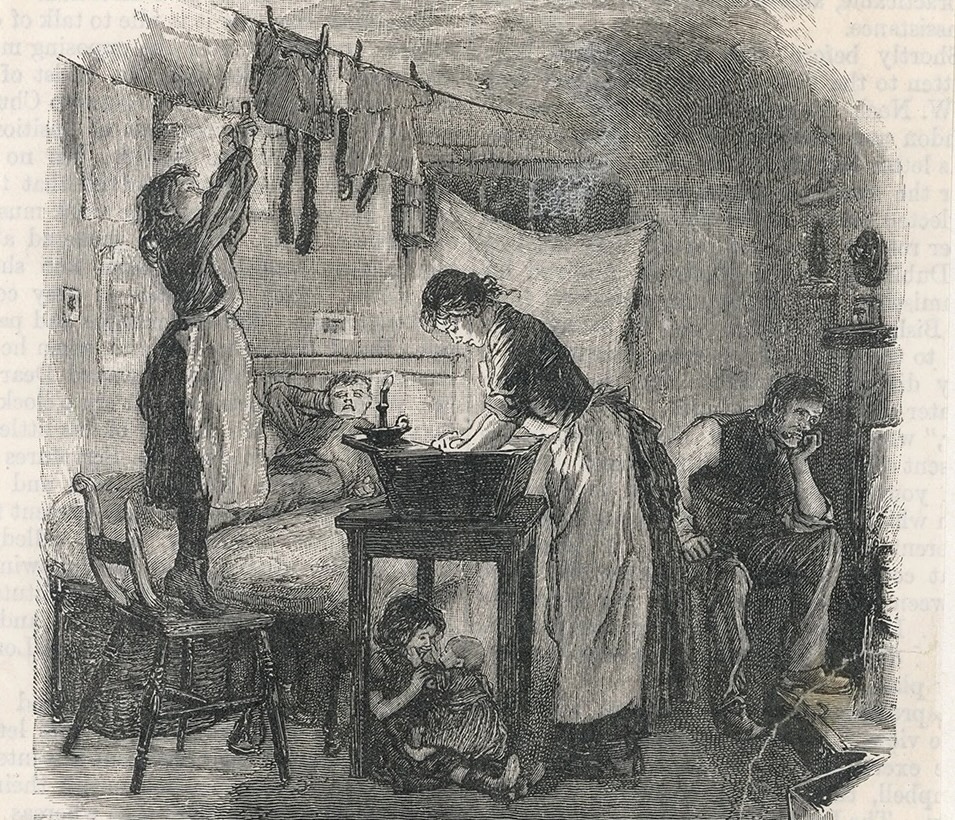
Despina Stratigakos on Architecture in the Family Way
In Architecture in the Family Way: Doctors, Houses, and Women, 1870-1900, Annmarie Adams explores the middle-class home in nineteenth century England as a battleground among health reform minded women, doctors, and architects. Middle-class women positioned themselves as the healers of houses, which Victorians considered toxic and disease-ridden, and thus a potential mortal danger to their […]
Dawid Roszkowski and Dongyong Oh on Purple Hibiscus
As students in the NEW ORDER studio at the Academy of Architecture, Mendrisio, led by Clancy Moore, Dawid Roszkowski & Dongyong Oh used the novel Purple Hibiscus as a starting point and guide for the developments of their design projects. This is a selection of the memory drawings and and fragment models that they made.
Danna Nishmas on Fear in a Handful of Dust
In Victoria Rosner’s text, “Fear in a Handful of Dust,” she discusses how the germ theory led to a paradigm shift in how people started to view spaces, specifically the cleanliness of them. Rosner explains how senses used to be the main assessment of hygiene, meaning that people would rely on vision and smell to […]

Cristina Fusco on The Mushroom at the End of the World
Anna Tsing unravels stories of hidden ecologies emerging around the matsutake mushroom on different continents, unveiling the mushroom as an emotional anchor, a commodity, and a sign of resurgence in disturbance-based ecosystems. These disobedient ecologies, arising from deteriorated grounds, fascinate me as an alternative way of thinking about the relationship between non-human beings, architecture and […]
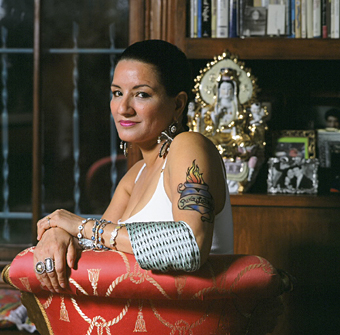
Cristina Dreifuss-Serrano on The House on Mango Street
The House on Mango Street, despite its title, is not a book about architecture, but about life… inside a house. A series of short stories or vignettes, written from the perspective of a young Latina girl in Chicago, tell us about migration, struggles, and life in general. Architecture is described as a setting, but also […]

Cristina Dreifuss-Serrano on Ladies of the Canyons
Even if not directly on architecture, through the stories of these women, this book offers interesting descriptions of the landscape and consolidation of the cultural understanding and inhabitation of late 19th- and early 20th-century US Southwest.
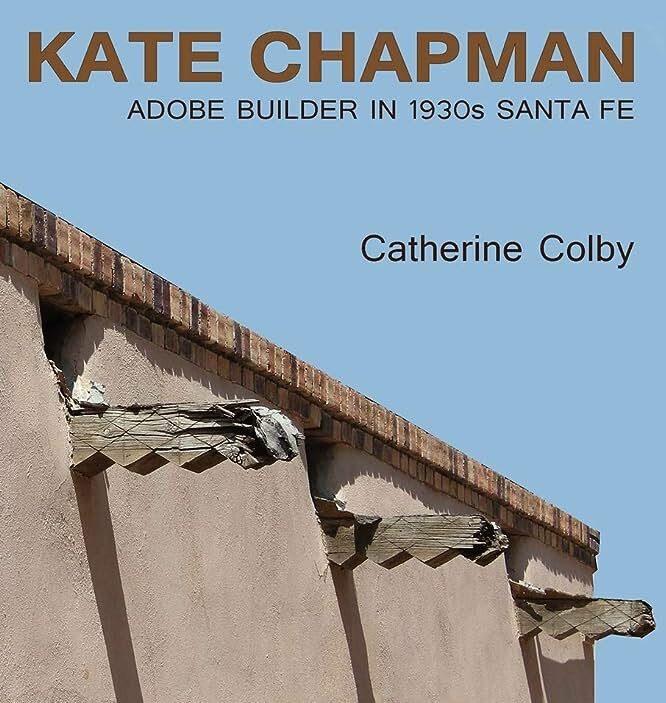
Cristina Dreifuss-Serrano on Kate Chapman
Catherine Colby has done good work researching and writing on a relatively unknown woman architect: Kate Chapman. Chapman work extensively on adobe constructions in Santa Fe, New Mexico during the first decades of the 20th century. She was also part of a vibrant artistic and cultural community that produced one of the most distinctive architecture […]
Claudia Ng on On The Fringe
Gwendolyn Wright explores the historical challenges women face in the field of architecture. She highlights how architectural practice is influenced by rigid sexual stereotypes and how women tend to have segregated roles in the periphery. She dissects the experiences of women from discriminatory hiring, salary, and advancement opportunities to double standards like discrediting domestic architecture […]
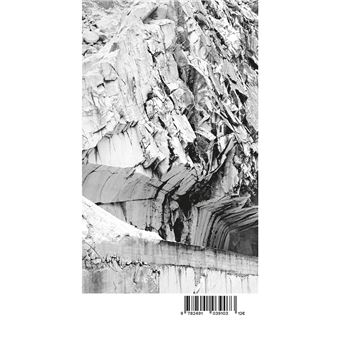
Claudia Mion on La Théorie du diamant
‘La perfection de l’acte créatif requiert de l’amour, et donc de la liberté’. Elisa Valero is an architect and a teacher. Her work, demanding and rigorous, is oriented towards the transmission of an architecture that is thought as much as built. This book, which reads like a manifesto, is a kind of first lesson in architecture. In […]
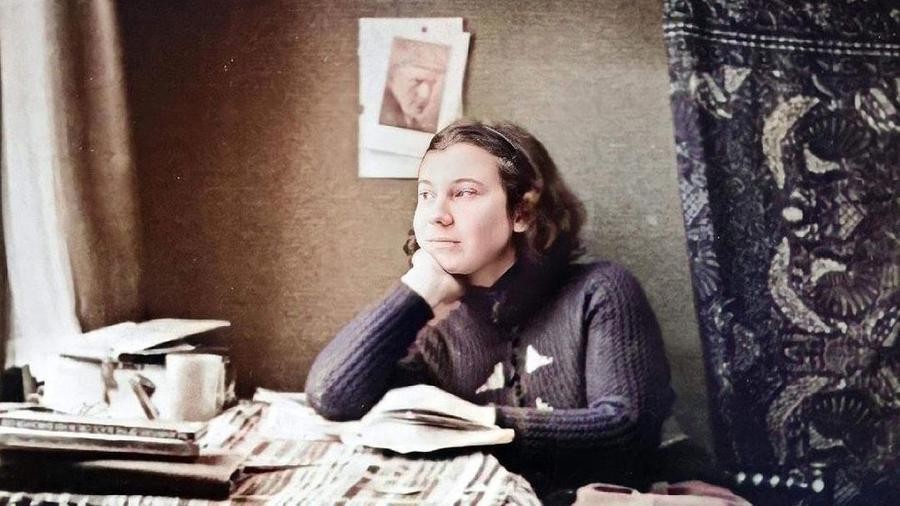
Clara Maria Puglisi on An Interrupted Life
Etty Hillesum (1914–1943) was a Dutch Jewish writer whose diaries, written during the Nazi occupation of the Netherlands, offer an intimate and profound reflection on life, memory, and personal resilience. She was a woman of extraordinary intellectual independence, defying traditional gender roles with her deeply introspective and philosophical approach to existence. Unlike many of her […]
